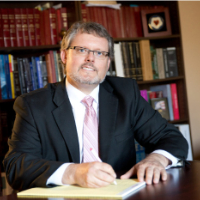 Elkland RICO Act Lawyers, Missouri
Elkland RICO Act Lawyers, Missouri
Sponsored Law Firm
-
 x
x

Click For More Info:
-
The Law Offices of Richard L. Cooper, P.A.
848 Brickell Avenue Suite 800 Miami, FL 33131» view mapDWI/DUI, Drug Trafficking, Felony Nationally Ranked Top 40 Under 40
With Richard L. Cooper you can expect a trusted confidant who will work diligently to fully understand your case and determine a road map to help you regain control of your life.
800-756-2781
Not enough matches for Elkland RICO Act lawyer.
Below are all Elkland Criminal lawyers.
Sponsored Lawyers
1-10 of 28 matches
Accident & Injury, Criminal, Workers' Compensation
The Morlan family has lived and farmed in Cedar County Missouri since the mid 1800’s. Tad grew up in El Dorado Springs and graduated from there in 1983. Tad then attended Missouri State University and studied Economics prior to attending law school at Washburn University in Topeka, Kansas, where he obtained his law degree. He began practicing law in 1992. Now Tad has almost 30 years under his belt practicing personal injury in Springfield Missouri helping thousands of people.
(more)Traffic, DUI-DWI, Criminal, Misdemeanor, Felony
Dan Romine is an attorney in Springfield, Missouri. His practice focuses on traffic tickets, DWIs, and general criminal defense. Mr. Romine is currently accepting cases in Southwest Missouri. His office is located at 417 Boonville--just down the street from the Greene County Courthouse. Call (417) 414-0849 for a free consultation.
(more)



 Richard L. Cooper Miami, FL
Richard L. Cooper Miami, FL AboutMiami Attorney at Law
AboutMiami Attorney at Law ServicesCriminal Defense
ServicesCriminal Defense


